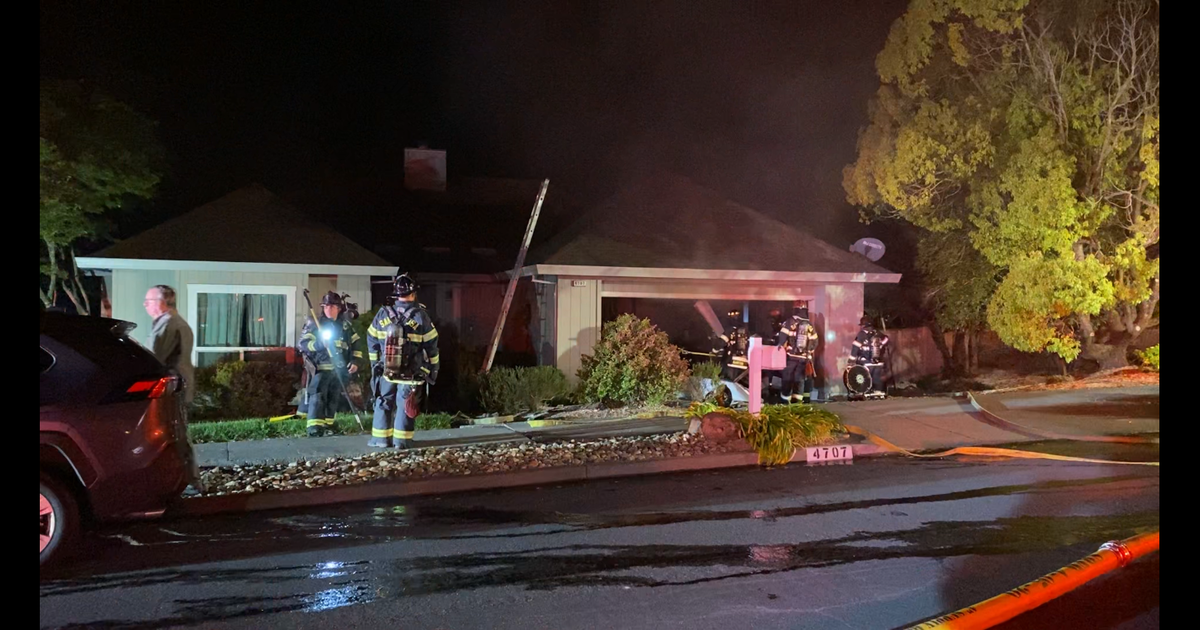'Dangerous Heat,' Winds Forecast For Fire Weary Bay Area; Flex Alert Issued For Labor Day Weekend
SAN FRANCISCO (CBS SF) – The upcoming heat wave over the Labor Day weekend is expected to impact current fire-fighting efforts, increase fire risk and has already triggered a energy flex alert for Saturday through Monday.
"Lots of weather threats this Holiday weekend: Dangerous heat, poor air quality, beach hazards and dry conditions that will exacerbate ongoing fires and be conducive to new starts," the National Weather Service summed it up Thursday.
The Weather Service has already declared an Excessive Heat Watch for most of the Bay Area away from the immediate coast, starting from 11 a.m. Saturday through 9 p.m. Monday.
Inland temperatures are expected to soar past the 100-degree mark during the Labor Day holiday weekend, the Weather Service said. Meanwhile, temperatures along the coast could reach the 70s and possibly up to 80.
California's power grid operator issued a flex alert Thursday in advance of the expected heat wave across the state this weekend.
The California Independent System Operator issued the flex alert from 3-9 p.m. Saturday through Monday. High temperatures across the state are expected to be between 10 and 20 degrees above normal during that time.
After two days of rolling blackouts, much of the state avoided power outages during the last heat wave in mid-August after residents did their part to conserve energy during peak hours, according to the CAISO.
CAISO officials said they expect to see an increase in the demand for electricity during peak hours due to increased air conditioner use.
To conserve energy, people are advised to set their air conditioning thermostats to 78 degrees, avoid using unnecessary lights and major household appliances, close blinds and drapes and use a fan when possible.
Updates on the flex alert over the weekend can be found at the CAISO's FlexAlert.org website.
Along with the heat, forecasters also expected smoke and haze to persist into the weekend. The Bay Area Air Quality Management District has declared a Spare the Air alert due to the smoke through at least Saturday.
The alerts, which ban the burning of wood or other solid fuel both indoors and outdoors, are the 18th and 19th consecutive alerts issued due to the smoke caused by lightning-sparked wildfires around the Bay Area and elsewhere in Northern California.
While much of the Bay Area could have moderate to good air quality going into this weekend, smoke from fires in the North Bay and South Bay are forecast to create isolated pockets of unhealthy air pollution in the North
Bay, San Francisco and the East Bay, according to the air district.
While the extreme heat is expected to subside starting Monday, the Weather Service said offshore winds could pick up early next week, raising the risk of fires.
"As high pressure sets up over the Western US, models are indicating and upper-level low that can drop southward over the Rocky Mountains late Monday and into the middle part of the week," the Weather Service said. "As this low moves south, it can potentially bring dry, warm offshore winds to the North and East Bay ridges. However, models are disagreeing on its exact movements."
Forecasters said they are concerned about conditions late Monday into early Tuesday, noting that even a weak to moderate wind event "would not be ideal given the current fire activity across the state."
As of Thursday, containment continued to grow on the three massive lightning fires burning in and around the Bay Area. The SCU Lightning Complex, the second-largest wildfire in state history, is 78 percent contained after burning 391,578 acres. Meanwhile, the LNU Lightning Complex, the third-largest, has burned 375,209 acres and is 81 percent contained.
In the Santa Cruz Mountains, the CZU Lightning Complex has burned 85,746 acres and is 48 percent contained.



